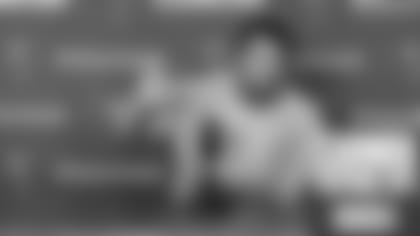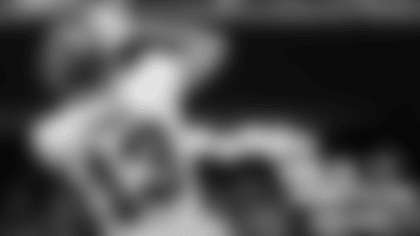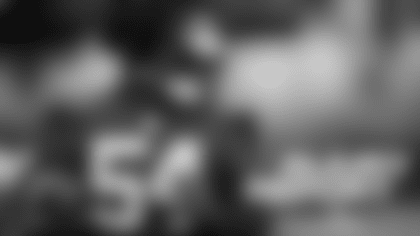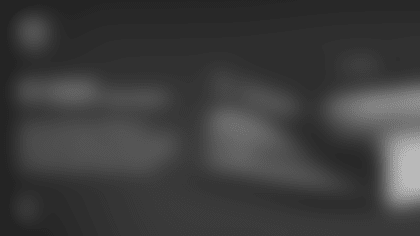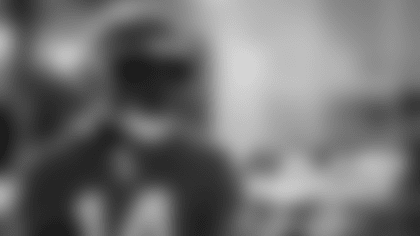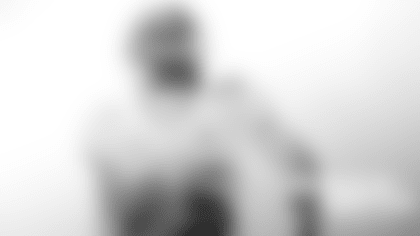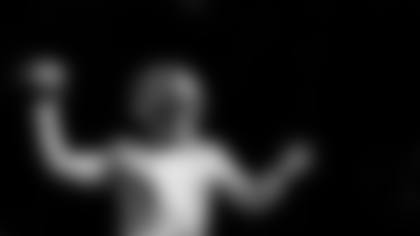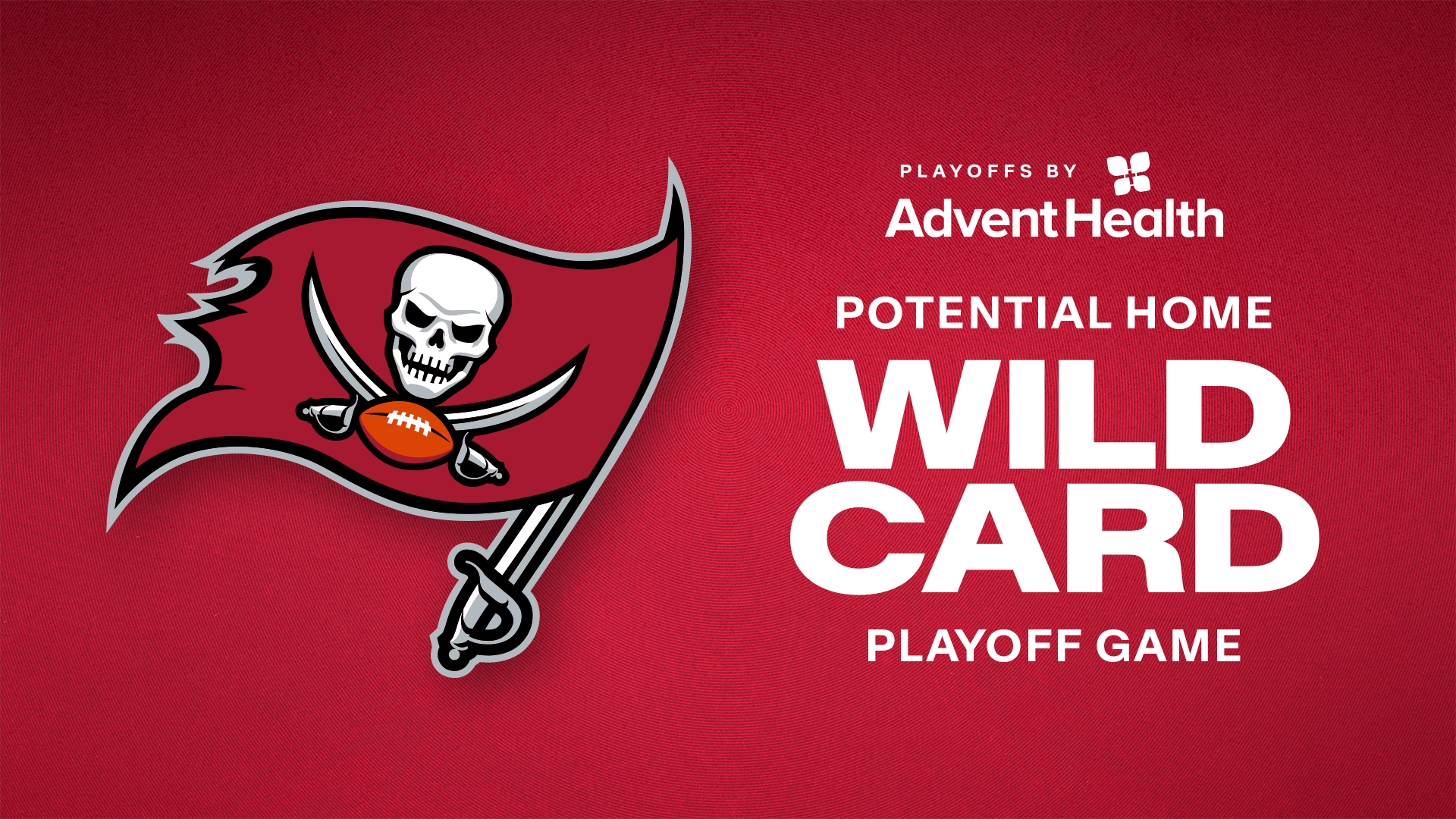The events surrounding Jacob Blake have again, sent off shockwaves across the country as it continues to combat systemic racism and police brutality. The demand for change keeps getting louder and on Wednesday, the Milwaukee Bucks refusing to play their playoff game against the Orlando Magic proved the catalyst for other NBA teams and games across multiple major sports needed to follow suit.
Thursday brought the same discussions across the NFL as teams continue their way through training camps. Head Coach Bruce Arians, Offensive Coordinator Byron Leftwich and running back LeSean McCoy were all asked for their thoughts and the below is a transcript of their words, unabated.
Head Coach Arians
(On if the team has had discussions regarding the recent events taking place in Wisconsin and the response around the sports world)
"I talked with some of our guys. We have a good social justice program here and our committee is meeting. If they want to do something, we'll do it, as long as it's something that's going to have something to do with change and not just taking a day off."
(On his reaction to the events that transpired in the sporting world on Wednesday and what responsibility teams and leagues have in these situations)
"The responsibility is to take action. I don't know that protest is an action. I think each guy has a personal thing [and] I would beg them to take action. Find a cause and either support it financially or do something to change the situation, because protesting doesn't do crap in my opinion. I've been seeing that since 1968."
Offensive Coordinator Byron Leftwich
(On what the team meeting regarding the actions taking place around professional sports was like)
"As a coach, the first thing you do is you listen to the players. It's really about them. I support whatever they want to do. To me, it's whatever. Whatever they feel we should do as a group, we'll do. I believe in the cause. Things have to change, right? The things we're seeing on TV right now – it's scary the things we see every day and the experiences that some people have. I'm in 100 percent support of whatever the players want to do. I don't think I should have an opinion on what they should do – I'm just here to support whatever they feel as though we should do."
(On the concept of race being a tough discussion)
"It's not a tough discussion for me. I don't know why it's such a tough discussion. That's amazing that it's 2020 and it's still a tough discussion. Like you said, it shouldn't be tough. I don't know why that's so tough, but hopefully we can find a way to make that not a tough conversation, so we can get things changed. To me, personally, I don't know why that would be so tough to talk about when we're talking about grown men."
Running back LeSean McCoy
(On if there have been social justice conversations among players)
"We're hurt. We're hurt with everything we're seeing and that we constantly keep seeing. We want an answer, but as a group, that's something we've got to talk about. What's the best way to get our message across and be productive? We don't want to just say these things, say this [or] say that. We want to actually go out there and be productive, and as a unit, as a group of all colors and all teammates to try to make a difference. The tough part is there's no real answer for those questions yet. Hopefully together we can send a message out, whatever that may be. B.A. (Bruce Arians) talked about it today – as a group, how can we find a solution and an answer to make our statement? I'm not sure about just not practicing. What does that do? We want to have a real stand. We want to paint a picture that everybody could understand and comprehend. That's the tough part, but I think eventually as the older guys on the team come together – we've been talking about it, but it will pick up more. Hopefully we will have a great solution."
(On the emotions involved when having social justice discussions with teammates)
"It's tough. It really is because people forget – obviously it's a sport, there is fans, etc. but this is our job. We come here to do our job and it's hard to overlook the things that are happening in our country. I love my country, but there are so many things we could do better. We all – especially a lot of the African-American players – we feel that because we come from [those] environments where it's not safe. You kind of want to call the police when there's an issue and hope that it will get resolved, and not resolved in killings. You keep constantly seeing it and seeing it, and it's not OK. When we have these conversations, guys are emotional. That could be [one of us]. We are who we are, right? We could be some of [those] people that doesn't really have a voice or [are] losing their lives. It's really tough. Those are the kind of conversations, to be honest, that are real touchy. It's like you keep seeing it. It's one thing if you hear about it, but it's actually on tape. You could rewind it and rewind it and rewind it and see it. It is tough. It's tough to be a black kid and see that. Those are touchy topics."
(On athletes from around the sports world using their platforms to bring awareness to social injustice)
"We really just want to bring light to the issues. I think that a lot of times we get wrapped up in just our career – we play ball, we make good money. As a kid you probably grew up a Lakers fan, a Clippers fan or whatever it is because sports is just a thing when you're a child. But, when you really look at the overall picture, we have a platform and a voice. We want to make [it] clear that, 'Hey, this is not OK.' People love to just kick back, watch the games and enjoy themselves. For them, that's like a time of rejoice or a time to relax. So, why not make that clear at that time, 'Hey, we know people love to watch games, but right now there's a bigger issue so there won't be [any] games. I could see their message that they were trying to paint, to get across and [create] awareness. It's so wrong. There are so many great things about this country, but certain things we can't take over and over and over again. I think a lot of ball players are really just stating how they feel by using their voice, using their platform [and] by constantly – over and over – addressing it."
(On what went through his mind after watching Jacob Blake get shot by police)
"I just don't get it. I really don't. It's like, 'OK, the first time it happens it's wrong,' right? But you keep doing it over and over doing it and it's like, 'What didn't you learn from the last case?' Killing a man is wrong. The people after the fact that keep watching it, keep seeing it – it's like you see what's going on and people are talking about it, people are addressing it, they're making people more aware, and you still are killing innocent people [who are] unarmed. Stuff like that is just hard to understand. Even that video – I guess people were saying the guy was going to the car, etc. – there were so many things you could've done. Tackle the guy – you have him out-numbered, tackle him, tase him, something. But killing and shooting him seven times? Come on man, that's uncalled for. There is no reason why he should have shot him seven times. I have a lot of cop friends that I'm close with and we talk about these things. I always ask them, 'In this situation and in this scenario, what would you have done or what should've happened?' If a guy doesn't have a weapon or doesn't seem like he has a weapon, drawing your weapon should never be the answer. In that situation that recently just happened, I think they could have just tackled the guy if you thought he was going to the car to get a weapon or whatever you though – but don't shoot him seven times. That's uncalled for. That could've been your child. You've got to think about that as a cop – that could've been my son, that could've been his son, and you don't want anybody treating your child that way. That's just the hard part when you look at it because you can get angry watching it over and over again. I struggle with that."











